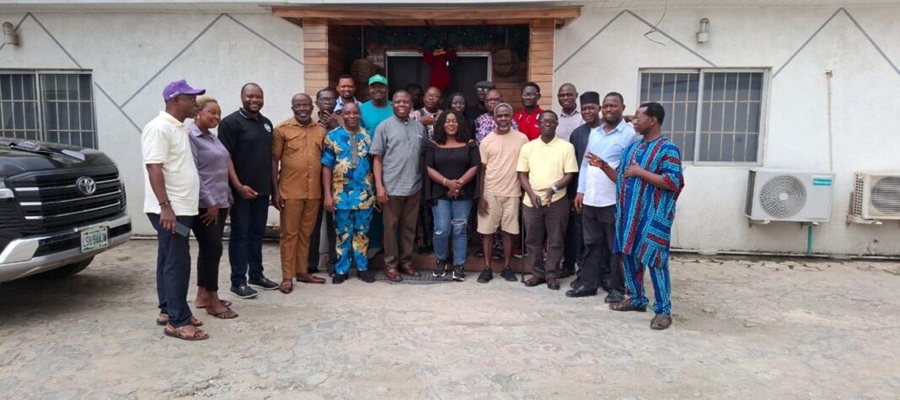Broadcasting
Telecommunications Services and Pay TV Services is Set to Grow by 2% in 2018, According to IDC

According to International Data Corporation (IDC) Worldwide Telecom Services Database, Worldwide spending on Telecom Services and Pay TV Services is expected to reach nearly $1.7 billion in 2017, an increase of 1.7% over 2016.
IDC expects worldwide spending on Telecom and Pay TV services to grow 2% year over year and surpass $1.7 billion in 2018.
The largest segment of the market is Mobile which represents 52% of the total market in 2017.
The Mobile market is expected to have a compound annual growth rate (CAGR) of 2% over the 2017-2021 forecast period, driven by the growth in mobile data usage and M2M applications, which is offsetting declines in spending on mobile voice and messaging services.
Fixed Data service spending represents 21% of the total market in 2017 and that is set to grow by a CAGR of 4% driven by the need for higher bandwidth services.
The Pay TV services market, which consists of Cable, Satellite, Internet protocol (IP), and Digital Terrestrial TV services, will remain flat over the five-year forecast period.
However, these services are an increasingly important part of the multi-play offerings of telecom providers across the world.
Spending on multi-play services is projected to increase by 9% in 2017 and by 7% in 2018.
Spending on Fixed Voice services will experience a CAGR of -6% over the forecast period and will represent less than 10% of the total market by 2021.
Rapidly declining TDM Voice revenues are not being offset by the increase in IP Voice.
On a geographic basis, the Americas will be the largest services market with revenues of $635 billion in 2017, driven by the large North American sector.
Asia/Pacific will be the second largest region, followed by EMEA.
The markets with the fastest year-over-year growth in 2017 will mainly be the emerging markets of Asia/Pacific, followed by EMEA.
Courtney Munroe, group vice president, Worldwide Telecommunications Research at IDC. Said that, “The steady growth in the worldwide telecom market is driven by the need for IP services and higher bandwidth services, which are more than offsetting declining legacy telecom services”.
Also, Kresimir Alic, senior program manager, CEMA Telecoms & Networking, and Worldwide Telecom Services Database, said that “Mobility is and will dominate the overall telecom market as users in both developing and developed markets increasingly see mobile services based on 3G, 4G and, in the near future, 5G, as a key component of both personal and business communications”.
Broadcasting
Tim Akano Recounts 20-Year Growth, Media Support at NITRA End-of-Year Meet

Mr. Tim Akano, New Horizons Chief Executive Officer, took centre stage at the Nigerian Information Technology Reporters’ Association (NITRA) annual end-of-year meeting on Thursday, December 18, 2025, recounting the company’s remarkable growth and reaffirming free IT training for journalists.

Tim Akano, New Horizons Chief Executive Officer, in a group photograph with NITRA Members
Speaking directly to IT media members at the company’s training facility in Lagos, Akano acknowledged the critical role journalists played in supporting New Horizons during its formative years two decades ago.
He detailed how the firm evolved from a handful of staff to one of Africa’s leading ICT skills training organisations, now employing about 500 staff across multiple training centres nationwide.
Akano Spotlights Youth Training, University Partnerships
Akano highlighted that New Horizons has trained over 500,000 youths, particularly tertiary institution students, equipping them with practical IT skills essential for Nigeria’s digital economy.
He announced recent partnerships with universities, including a new agreement with Afe Babalola University, to scale hands-on training programmes for students.
“This growth would not have been possible without the media’s support in documenting our journey,” Akano stated, pledging continued free IT skills training for media members to remain competitive in the evolving digital landscape.
Reciprocal Support Defines Long-Standing Partnership
The venue hosting the NITRA meeting underscored Akano’s generosity; NITRA Secretary Chidiebere Nwankwo secured the free facility after contacting him—a gesture consistent with New Horizons hosting multiple association events and training IT journalists since its inception 20 years ago.
Participants shared personal testimonies of Akano’s support, including veteran journalist Aaron Ukodie, whose daughter—an Accounting graduate from the University of Johannesburg—received NYSC placement and IT scholarship at New Horizons.
The Guardian’s Yemi Adeyemi recounted Akano accommodating his editor’s child for mandatory IT training after other firms declined.
Members praised Akano’s commitment to human capital development as evidence of deep appreciation for the media community that chronicled New Horizons’ success over two decades.
Broadcasting
NIMC rolls out Pre-Enrolment Portal for seamless NIN registration

National Identity Management Commission (NIMC) has launched the NIMC Pre-Enrolment Portal to revolutionise the National Identification Number (NIN) enrolment process, enabling applicants within Nigeria and in the Diaspora to capture biodata online prior to biometric verification at enrolment centres.

NIMC
Accessible via penrol.nimc.gov.ng, the platform allows users to fill enrolment forms, schedule appointments, upload supporting documents securely, and manage personal details directly, thereby slashing congestion, minimising wait times, boosting data accuracy and enhancing overall service efficiency at centres nationwide.
NIMC Director-General and CEO, Engr. (Dr) Abisoye Coker-Odusote, spearheaded the initiative as part of the Commission’s technology-driven strategy to fortify institutional performance, aligning with President Bola Ahmed Tinubu’s Renewed Hope Agenda that emphasises digital transformation, efficient public service delivery and inclusive national development.
Dr Kayode Adegoke, Head of Corporate Communications, highlighted key benefits including simplified biodata handling, confidential data protection through robust security measures, reduced physical centre visits and heightened operational effectiveness, urging all prospective enrollees to adopt the portal for a faster, citizen-friendly experience.[conversation_history]
The move underscores NIMC’s mandate under the NIMC Act No. 23 of 2007 to manage the National Identity Database, issue NINs and foster a reliable digital identity ecosystem vital for national planning, with users advised to complete pre-enrolment online before heading to selected centres for biometrics.
Broadcasting
MultiChoice Talent Factory Calls for Entries Into Fully Funded Film Training Programme

MultiChoice Talent Factory (MTF), a Pan-African film and television training institution, has announced the opening of applications for its 2026 intake.

MultiChoice
The fully funded programme is open to African graduates aspiring to become directors, filmmakers, scriptwriters, producers and storytellers.
According to MultiChoice, the nine-month accredited curriculum combines online learning with intensive in-person training, and is designed to balance theoretical knowledge with practical immersion.
MTF academies are located in Kenya, Nigeria and Zambia, and serve aspiring filmmakers from 14 African countries. Since its inception in 2018, the initiative has trained 296 filmmakers, with graduates producing more than 42 movies aired on DStv, GOtv and Showmax platforms.
Organisers said alumni of the programme have gone on to establish over 50 production companies, while many continue to work within the MultiChoice ecosystem.
Graduates have also won accolades at the Africa Magic Viewers’ Choice Awards, Kalasha Awards, Uganda Film Festival and Women in Film Awards.
Applications for the 2026 intake close on Feb. 27, 2026. Interested candidates can visit https://apo-opa.co/3XW53oE for programme requirements.

 Telecom3 days ago
Telecom3 days agoGoogle Finally Allows Users to Change Gmail Address, Keeps Data and Services Intact

 News3 days ago
News3 days agoInsomniaQ Spotlights African Creativity in Lagos

 General News3 days ago
General News3 days agoT2 Backs Youth Excellence as NCBC Wins Bosun Tijani Foundation Basketball Tournament

 E-Financial2 days ago
E-Financial2 days agoNigeria’s N58.18trn Budget and Rising Cost of Deficit Governance

 Telecom2 days ago
Telecom2 days agoNnaemeka Ani – The Architect of ‘Code and Courage’

 Telecom2 days ago
Telecom2 days agoMTN Nigeria Appreciates Partners, Customers at Lagos Prestige Experience

 Telecom15 hours ago
Telecom15 hours agoNCC Grants 45 Days for Telecoms Firms to Fix Unapproved Shareholding Changes

 Telecom15 hours ago
Telecom15 hours agoMTN Nigeria Crowns Ayo Benzi Winner of Next Afrobeats Star


























